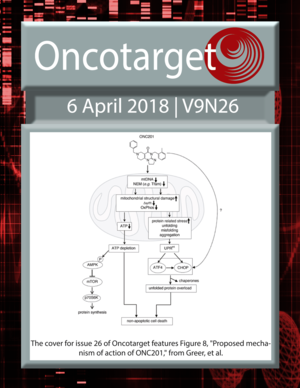Stanley Lipkowitz, M.D., Ph.D.
- Center for Cancer Research
- National Cancer Institute
- Building 10, Room 4B54
- Bethesda, MD 20892-1361
- 240-760-6129
- lipkowis@mail.nih.gov
RESEARCH SUMMARY
My laboratory has two main areas of interest. 1) We study Cbl proteins, a family of ubiquitin ligases that negatively regulate signaling by receptor tyrosine kinases. 2) We investigate induction of apoptosis in breast cancer cells by TRAIL receptor agonists. I am an attending physician in the Women’s Malignancies clinic at NCI and in the Breast Cancer clinic at Walter Reed National Military Medical Center. As Chief, I oversee the laboratory and clinical research in the WMB. Our goal is to integrate laboratory and clinical research findings into mechanism-based, hypothesis-driven clinical trials on patients with breast and gynecological malignancies.
Areas of Expertise
Information for Patients
Learn more about our clinical trials and the highly specialized care teams that lead them.
Stanley Lipkowitz, M.D., Ph.D.
Research
Molecular Control of Growth, Differentiation, and Death in Epithelial Cancer Cells
My laboratory studies signal transduction pathways that regulate growth and programmed cell death in epithelial cancer cells, with a focus on breast and ovarian cancer. We have three projects:
In the first project we are studying the function of Cbl proteins. Human epithelial malignancies frequently display deregulated tyrosine kinase activity. Understanding the mechanisms that regulate signaling by these kinases should uncover new ways to inhibit cancer cell growth. We are investigating the function of Cbl proteins, a family of proteins that regulate tyrosine kinase activity. Cbl proteins belong to the RING finger class of ubiquitin protein ligases (E3s) and function as E3s for activated tyrosine kinases. My group cloned two of the three mammalian Cbl genes (Cbl-b and Cbl-c). We have shown that all mammalian Cbl proteins mediate ubiquitination and degradation of the activated EGFR as well as other components of the signaling complex. Ongoing work is focused on understanding the biochemical and physiologic functions of the three mammalian Cbl proteins in epithelial cells and elucidating the differences in their specificity and/or function.
Cancer cells avoid apoptosis by a variety of genetic and epigenetic mechanisms. In a second project we are investigating the induction of apoptosis by activation of death receptors for the ligand TRAIL in breast and ovarian cancer cells. Our goal is to selectively trigger apoptosis in the cancer cells. We have shown that most breast and ovarian cancer cell lines are resistant to the induction of apoptosis by TRAIL, the ligand for the death receptors DR4 and DR5. We have demonstrated that resistance to TRAIL-induced apoptosis can be overcome by co-incubation of the cells with chemotherapeutic agents, semi-synthetic retinoids (such as 4HPR), or molecularly targeted agents (such as anti-ErbB-2 antibodies). Our current work utilizes biochemical and genetic approaches to identify mechanisms that regulate the induction of death by TRAIL ligand in breast and ovarian cancer cells.
Breast cancer tumors that do not express hormone receptors or have amplification of Her2/Neu (so called triple-negative tumors) have a poor prognosis and no validated molecular targets. In our third project we are using functional genomic approaches and tumor genetics to identify new therapeutic targets in triple-negative breast cancer cells.
Publications
- Bibliography Link
- View Dr. Lipkowitiz's PubMed Summary.
Biography
Stanley Lipkowitz, M.D., Ph.D.
Stan Lipkowitz received an A.B. in 1977 and an M.D. and Ph.D. in 1984 from Cornell University. He trained in internal medicine at the New York Hospital and came to the NCI as a medical oncology fellow in 1987. After completing a fellowship, he established his own laboratory which studies the molecular and cell biology of epithelial cancer cells. Dr. Lipkowitz is also an adjunct Professor of Medicine and an adjunct faculty member of the Molecular and Cell Biology Graduate Program at the Uniformed Services University of the Health Sciences.
Job Vacancies
We have no open positions in our group at this time, please check back later.
To see all available positions at CCR, take a look at our Careers page. You can also subscribe to receive CCR's latest job and training opportunities in your inbox.
Team
News
Gallery
Dr. Yoshimi Greer, M.D., Ph.D., Dr. Stanley Lipkowitz, M.D., Ph.D., Sarah Weltz, B.S., David Wisnewski, Ph.D., Donna Voeller, Yonit Addissie, M.A., Manjari Kundu Sil, Ph.D.
ONC201 kills breast cancer cells in vitro by targeting mitochondria
PUBLISHED DATE
Apr 1, 2018
About the Cover
The cover for issue 26 of Oncotarget features Figure 8, "Proposed mechanism of action of ONC201" from Greer, et al.
Abstract
We report a novel mechanism of action of ONC201 as a mitochondria-targeting drug in cancer cells. ONC201 was originally identified as a small molecule that induces transcription of TNF-related apoptosis-inducing ligand (TRAIL) and subsequently kills cancer cells by activating TRAIL death receptors. In this study, we examined ONC201 toxicity on multiple human breast and endometrial cancer cell lines. ONC201 attenuated cell viability in all cancer cell lines tested. Unexpectedly, ONC201 toxicity was not dependent on either TRAIL receptors nor caspases. Time-lapse live cell imaging revealed that ONC201 induces cell membrane ballooning followed by rupture, distinct from the morphology of cells undergoing apoptosis. Further investigation found that ONC201 induces phosphorylation of AMP-dependent kinase and ATP loss. Cytotoxicity and ATP depletion were significantly enhanced in the absence of glucose, suggesting that ONC201 targets mitochondrial respiration. Further analysis indicated that ONC201 indirectly inhibits mitochondrial respiration. Confocal and electron microscopic analysis demonstrated that ONC201 triggers mitochondrial structural damage and functional impairment. Moreover, ONC201 decreased mitochondrial DNA (mtDNA). RNAseq analysis revealed that ONC201 suppresses expression of multiple mtDNA-encoded genes and nuclear-encoded mitochondrial genes involved in oxidative phosphorylation and other mitochondrial functions. Importantly, fumarate hydratase deficient cancer cells and multiple cancer cell lines with reduced amounts of mtDNA were resistant to ONC201. These results indicate that cells not dependent on mitochondrial respiration are ONC201-resistant. Our data demonstrate that ONC201 kills cancer cells by disrupting mitochondrial function and further suggests that cancer cells that are dependent on glycolysis will be resistant to ONC201.
CITATION
ONC201 kills breast cancer cells in vitro by targeting mitochondria. Greer YE, Porat-Shliom N, Nagashima K, Stuelten C, Crooks D, Koparde VN, Gilbert SF, Islam C, Ubaldini A, Ji Y, Gattinoni L, Soheilian F, Wang X, Hafner M, Shetty J, Tran B, Jailwala P, Cam M, Lang M, Voeller D, Reinhold WC, Rajapakse V, Pommier Y, Weigert R, Linehan WM, and Lipkowitz S. Oncotarget 9(26):18454-18479, 2018.
About Oncotarget
Oncotarget is a weekly, peer-reviewed, open access biomedical journal covering research on all aspects of oncology. To learn more about Oncotarget, please visit https://www.oncotarget.com or connect with @Oncotarget
Oncotarget is published by Impact Journals, LLC. Please visit https://www.ImpactJournals.com or connect with @ImpactJrnls
Media Contact
18009220957x105
MEDIA@ONCOTARGET.COM





